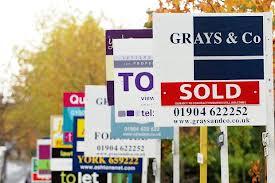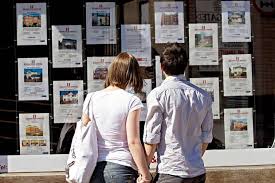House prices are rising and rising fast. Thanks to government interference via incentives, (Help to Buy) subsidies (Funding for Lending) and a pledge (albeit conditional) by Mark Carney to hold interest rates at 0.5% until after the general election, house prices are on the up as debt becomes affordable and everyone is happy again.
 First time buyers are snapping up their first home in fear that prices will quickly rise beyond their reach, with cheap loans in the ‘safe’ knowledge that rates will not rise for 3 years. Existing homeowners feel wealthier as the value of their home increases and they are able to re mortgage, withdrawing equity perhaps for a holiday or a new car. After all, increasing a mortgage by £5,000 would require just £75 extra interest a year with repayments an extra £200 a year over 25 years. When you factor in inflation at 3.2% it is virtually free money so what’s not to like.
First time buyers are snapping up their first home in fear that prices will quickly rise beyond their reach, with cheap loans in the ‘safe’ knowledge that rates will not rise for 3 years. Existing homeowners feel wealthier as the value of their home increases and they are able to re mortgage, withdrawing equity perhaps for a holiday or a new car. After all, increasing a mortgage by £5,000 would require just £75 extra interest a year with repayments an extra £200 a year over 25 years. When you factor in inflation at 3.2% it is virtually free money so what’s not to like.
Rises in house prices are useless to the economy. Any increase in consumer spending comes from additional borrowing. House prices are not rising because of rising incomes or because prices have fallen too much, they a rising because of the state subsidies making debt more affordable.
 Who are the real beneficiaries of rising prices? Existing home owners will only realise their gain if they downsize. Those who don’t own a home will see something they want but don’t yet have going up in price and becoming even more attainable. But estate agents are laughing all the way to the bank. They are normally paid a percentage of the selling price achieved. As prices rise, so do agent’s revenues as their costs remain unchanged.
Who are the real beneficiaries of rising prices? Existing home owners will only realise their gain if they downsize. Those who don’t own a home will see something they want but don’t yet have going up in price and becoming even more attainable. But estate agents are laughing all the way to the bank. They are normally paid a percentage of the selling price achieved. As prices rise, so do agent’s revenues as their costs remain unchanged.
 But the real beneficiaries are the government. Stamp Duty is 3% on homes that sell for more than £250,000. Around 25% of homes sold in 2012 paid at least £7,500 in Stamp Duty. That percentage will increase as prices increase all the time the thresholds remain unchanged. A property firm is predicting that the ‘Help to Buy’ scheme will result in an extra £1bn in stamp duty tax revenues over the next four years.
But the real beneficiaries are the government. Stamp Duty is 3% on homes that sell for more than £250,000. Around 25% of homes sold in 2012 paid at least £7,500 in Stamp Duty. That percentage will increase as prices increase all the time the thresholds remain unchanged. A property firm is predicting that the ‘Help to Buy’ scheme will result in an extra £1bn in stamp duty tax revenues over the next four years.
Then there is Inheritance Tax. This is currently £325,000 and despite George Osborne’s pre-election pledge in 2007 to increase it to £1million, it has remained unchanged at £325,000 since 2009 and will not rise until at least 2019, resulting in an extra 5,000 estates handing over an additional £200million to the treasury. As house prices rise, even a modest family home will result in more estates being subject to Inheritance Tax. In 2011, just 19,000 estates incurred Inheritance Tax, equating to just 3% of all deaths.
If the government really wanted to stimulate the housing market without inflating prices and creating a bubble with the inevitable crash; abolishing stamp duty, capping estate agents fees at £3,000 with zero-rated Vat would be a good start. But that would reduce tax revenues not increase them.





